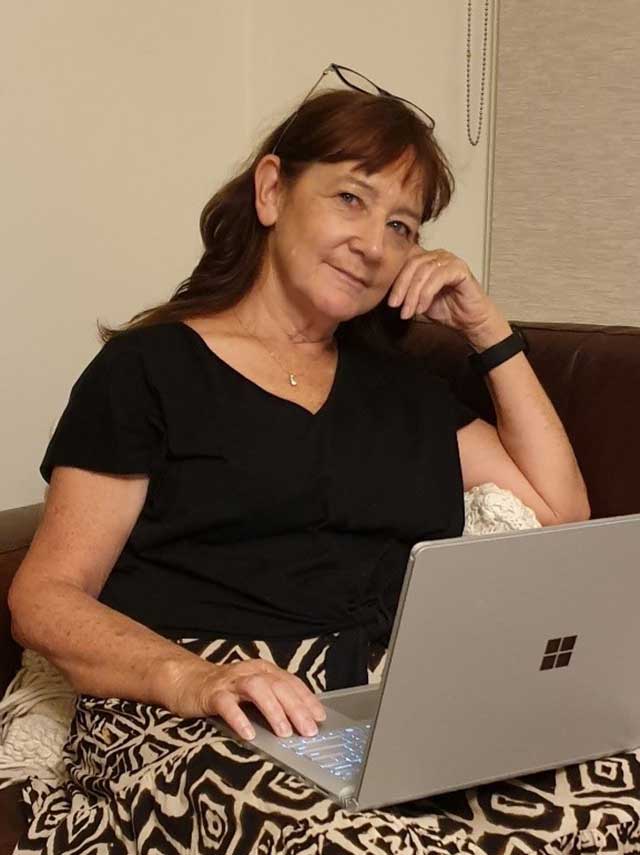
Valerie Milne is a Researcher in New Plymouth; she has been key in advising Arthritis New Zealand to develop and input a peer support programme for the newly diagnosed.
“I have had Rheumatoid Arthritis since 2001. Before then I knew nothing about RA, what the symptoms were and how it would affect my life. It took several years to stabilise on a DMARD and the problems in my hands and wrists meant I had to resign from my job. Damage in my wrist is a reminder of those days. Now, with good management and constantly improving treatments joint damage and disability is no longer something I fear.”
Valeries says that a key factor in achieving the best possible outcomes for a person with RA is early access to Rheumatology care. Knowing that her own diagnosis was delayed due to her lack of awareness of RA, once her condition stabilised, she decided to get a better understanding of how the early stages of Inflammatory Arthritis affected people’s pathways to treatment.
“Signing up to university also provided the opportunity work at my own pace and to manage tasks in ways that meant I was not overusing sore joints. The research results tell the stories of patients’ experiences of accessing rheumatology care after symptoms appeared. Factors they spoke of range from beliefs about the cause of symptoms to the availability of social support, work commitments, transport and the cost of medical care.
The most important health system barriers to timely first specialist assessments were referral delays from the GP and too few rheumatologists to manage the patient workload. Currently I have a special interest in resources for newly diagnosed women who have work commitments and care around pregnancy and early mothering.”